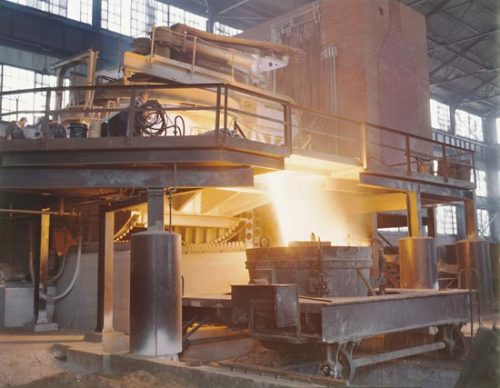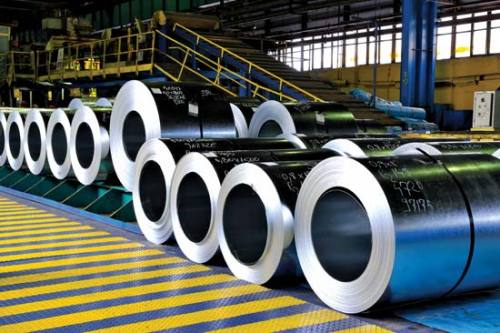Proof Without Words - Pi

Proof without words - Pi
This was intended to be posted on Pi-day earlier this month, but somehow that didn’t happen.
Hope this beautiful pi gif on this sizzling Saturday puts a smile on your face and guides you through the day.
Have a good one!
Photo credit: Lucas V. Barbosa via Wikimedia Commons
** FYP’s Pi-day post ( if you are interested )
More Posts from T-sci-eng and Others





In mathematics there is a concept known as ‘Conformal Mapping’ which allows you convert a given shape to a completely different one by making a transformation.
In the joukowski transform you take all the points on a circle and apply the following transform:

And the resulting transformed points resemble an aerofoil shape. Pretty cool huh ?
** Conformal mappings are a really cool topic in complex analysis but also equally extensive. If you want to know more about them click here
Puritans, Goths, avant-garde artists, hell-raising poets and fashion icon Coco Chanel all saw something special in it. Now black, that most enigmatic of colours, has become even darker and more mysterious.
A British company has produced a “strange, alien” material so black that it absorbs all but 0.035 per cent of visual light, setting a new world record. To stare at the “super black” coating made of carbon nanotubes – each 10,000 times thinner than a human hair – is an odd experience. It is so dark that the human eye cannot understand what it is seeing. Shapes and contours are lost, leaving nothing but an apparent abyss.



Thought this was important to post.






Crazy Looking Bamboo Tower Creates 25 Gallons of Drinking Water Per Day From Thin air
This crazy looking tower creates 25 gallons of drinking water per day from thin air. It’s basically an atmospheric water collector which gathers dew from the air.
“…The 9 m tall bamboo framework has a special fabric hanging inside capable to collect potable water from the air by condensation…”
It’s called the WarkaWater:
“…The name ‘WarkaWater’ comes from the Warka Tree, a giant wild fig tree native to Ethiopia, traditionally used for public gatherings and school education. The Warka Tree is an archetype of the Biennale theme ‘Common Ground’…”
The simple and practical, yet elegant design powers out ahead of any of the commercial atmospheric water generators on the market which cost thousands more to build than this.
This is a wonderful water generation idea, that’s inexpensive, and actually beautiful to look at.
Water is life, and being designed after a tree. This is a real Tree of Life.


It’s easy: Form a triangle, then a hexagon, then a bicycle wheel
This is the general mechanism on how a spider spins its web (talk about engineering, right?). When an insect gets caught in its web, the vibrations caused by the insect is felt by the spider which then rushes to engulf its prey.
Now here is the trippy part ; This is the effect of drugs on the pattern of the web.


Hope you are having a great week. Have a good one!
* Spider spinning a web (video) (if you find a better full video let us know)
** Spiders on drugs - NASA article ; Video

How did the Greeks know ?
Greeks had a strong geometric approach towards problems and as a result their methods are very intuitive.
In this post, we will look at the Method of exhaustion formulated by Archimedes that stands out as a milestone in the history of mathematics
Method of Exhaustion - Archimedes

Source
In order to find the bounds of pi, Archimedes came up with a remarkably elegant ‘algorithm’, which is as follows:
Lower bound
Inscribe a n-sided polygon in a circle —> Measure its perimeter(p) —> Measure its diameter(d) —> pi_min = p/d —-> Repeat with n+1 sides.
Upper bound
Circumscribe a n-sided polygon in a circle —> Measure its perimeter(p) —> Measure its diameter(d) —> pi_max = p/d —-> Repeat with n+1 sides.
And by following this procedure one could obtain the upper and lower bounds of pi !
Heres an animation made on geogebra for a circle of diameter 1. Watch how the lower and upper bounds vary.

Archimedes did this for a 96 sided polygon and found the value of pi to be between 3.14103 and 3.1427. This is a good enough approximation for most of the calculations that we do even today!

Happy Holidays !










But that’s not all it can do. Microsoft and NASA teamed up to “bring” you, yes you, to Mars.
Follow @the-future-now
There's an app for that
A “master list” of apps that are essential to student life.
Flashcards
Quizlet - Flashcard app that has pre downloaded flashcards and you can make your own flashcards. Available on multiple platforms
Duolingo - Language flashcard app
Flashcards+ - Another flashcard app
Math
Luna Calculator - calculator app ($2.99 on iOS)
Wolfram Alpha - online math solver
Symbollab - online math solver
Productivity & Planning
Forest - Grows a tree for every thirty minutes you are off your phone. If you touch your phone, the tree dies. ($0.99 on iOS)
FocusNow - Free version of Forest for iOS. Instead of trees, it grows fruits and vegetables.
30/30 - Great time management app
Any.Do - Great app for creating to-do lists, organize tasks, syncs with other devices. You can also change the priorities on certain tasks.
Studious - Great app on Android that reminds you when homework is due, when exams are and even silences your phone during class.
StayFocused - A chrome extension that you can customize to limit the time on websites to stay productive
Self Control - Allows you to block your own access to distracting websites for a certain amount of time. Useful for people who get distracted on the computer (Also known as Cold Turkey for Windows).
My Study Life - Student planner app
myHomework Student Planner - another Student planner app
To-do List - extensive to do list, like an online bullet journal
Learning
Itunes U - For any apple device users, a app that gives you access to free educational courses
TED - The whole catalog of TED talks at your fingertip.
Wikipedia - Free encyclopedia that can be used for general references
Khan Academy - study videos (absolutely amazing app/website)
Music
Coffitivity - coffee shop soundtrack
8tracks - great playlists, especially study playlists
Wake Up Calls
Alarmy - good alarm that will force you out of bed
Sleep Cycle - measures your sleep cycle
Math Alarm - alarm clock that forces you to do math to turn the alarm off, get’s your brain going
Class Lectures and Note Taking
Dragon Dictation - takes notes for lectures (useful for classes where professors talk faster than you can type)
XMind - mind mapping tool
Notability - another app for recording lectures. ($2.99 on iOS)
These are just a few study apps that can be useful for studying. I will add more (or make a new list) later as I learn about them; feel free to message me to add some to this list.




Alloys: Steel
According to Dictionary.com, steel is “any of various modified forms of iron, artificially produced, having a carbon content less than that of pig iron and more than that of wrought iron, and having qualities of hardness, elasticity, and strength varying according to composition and heat treatment: generally categorized as having a high, medium, or low-carbon content”.
Perhaps the most well known alloy around, as well as one of the most common materials in the world, steel is essentially iron with a small percentage of carbon (and, on occasion, one or more other elements). Not enough carbon and you’re stuck with wrought iron, too much carbon and you get cast iron. The graph above is a binary iron-carbon phase diagram that goes from zero percent carbon to about 6.5 percent, illustrating the various phases that can form.
Steel has been known about since ancient times, some pieces dating back to 1800 BC, but it was the invention of the Bessemer process during the industrial revolution that really popularized the alloy. (Technically, similar methods had been used before, particularly in China and Japan, but Henry Bessemer invented the modern method, industrializing it and obtaining a patent in 1856.)
Mainly used in construction, the alloy has been used for almost every possible application: from office furniture to steel wool, from bulldozers to washing machines, and from wires to watches, the possibilities are pretty much endless. Steel is also one of the world’s most-recycled materials, able to be used more than once, with a recycling rate of over 60% globally.
The addition of carbon allows the steel to be stronger than the iron it’s made from. Adding nickel and manganese increases its tensile strength, chromium increases hardness and melting temperature, and vanadium also increases hardness while making it less prone to metal fatigue. Stainless steel has at least eleven percent chromium, whereas Hadfield steel (which resists wearing) contains twelve to fourteen percent manganese. Check out these links for more information on the effects of adding certain elements.
Sources: 1 (top images), 2 (bottom images)
-
 shinypersonbageleclipse liked this · 3 years ago
shinypersonbageleclipse liked this · 3 years ago -
 plusminusplusminusplus reblogged this · 5 years ago
plusminusplusminusplus reblogged this · 5 years ago -
 titiawo liked this · 5 years ago
titiawo liked this · 5 years ago -
 go-wind-stuff reblogged this · 5 years ago
go-wind-stuff reblogged this · 5 years ago -
 go-wind-stuff liked this · 5 years ago
go-wind-stuff liked this · 5 years ago -
 i-dont-know-what-to-do-here reblogged this · 5 years ago
i-dont-know-what-to-do-here reblogged this · 5 years ago -
 mimiker224 liked this · 6 years ago
mimiker224 liked this · 6 years ago -
 go-wind-stuff reblogged this · 6 years ago
go-wind-stuff reblogged this · 6 years ago -
 alt-plus-w liked this · 6 years ago
alt-plus-w liked this · 6 years ago -
 helperbot-5000 reblogged this · 6 years ago
helperbot-5000 reblogged this · 6 years ago -
 piccolipezzi liked this · 6 years ago
piccolipezzi liked this · 6 years ago -
 blaue3 liked this · 6 years ago
blaue3 liked this · 6 years ago -
 algood reblogged this · 6 years ago
algood reblogged this · 6 years ago -
 algood liked this · 6 years ago
algood liked this · 6 years ago -
 bfshaped reblogged this · 6 years ago
bfshaped reblogged this · 6 years ago -
 obsessedfanofmanythings liked this · 6 years ago
obsessedfanofmanythings liked this · 6 years ago -
 201006 liked this · 6 years ago
201006 liked this · 6 years ago -
 xstarfirekory reblogged this · 6 years ago
xstarfirekory reblogged this · 6 years ago -
 xstarfirekory liked this · 6 years ago
xstarfirekory liked this · 6 years ago -
 rachelladytietjens liked this · 6 years ago
rachelladytietjens liked this · 6 years ago -
 yeltsinsstar reblogged this · 6 years ago
yeltsinsstar reblogged this · 6 years ago -
 carydorse reblogged this · 6 years ago
carydorse reblogged this · 6 years ago -
 carydorse liked this · 6 years ago
carydorse liked this · 6 years ago -
 ogrababanico reblogged this · 6 years ago
ogrababanico reblogged this · 6 years ago -
 ogrababanico liked this · 6 years ago
ogrababanico liked this · 6 years ago -
 elswere-1 liked this · 6 years ago
elswere-1 liked this · 6 years ago -
 jiajia-binks reblogged this · 6 years ago
jiajia-binks reblogged this · 6 years ago -
 jiajia-binks liked this · 6 years ago
jiajia-binks liked this · 6 years ago -
 sterlcat liked this · 6 years ago
sterlcat liked this · 6 years ago -
 balleryna reblogged this · 6 years ago
balleryna reblogged this · 6 years ago -
 unilateraluniverseofmine reblogged this · 6 years ago
unilateraluniverseofmine reblogged this · 6 years ago -
 unilateraluniverseofmine liked this · 6 years ago
unilateraluniverseofmine liked this · 6 years ago -
 sky-fi-fangirl reblogged this · 7 years ago
sky-fi-fangirl reblogged this · 7 years ago -
 sky-fi-fangirl liked this · 7 years ago
sky-fi-fangirl liked this · 7 years ago -
 whalesandcraftbeers reblogged this · 7 years ago
whalesandcraftbeers reblogged this · 7 years ago -
 karmajam liked this · 7 years ago
karmajam liked this · 7 years ago -
 pestinhiding reblogged this · 7 years ago
pestinhiding reblogged this · 7 years ago










